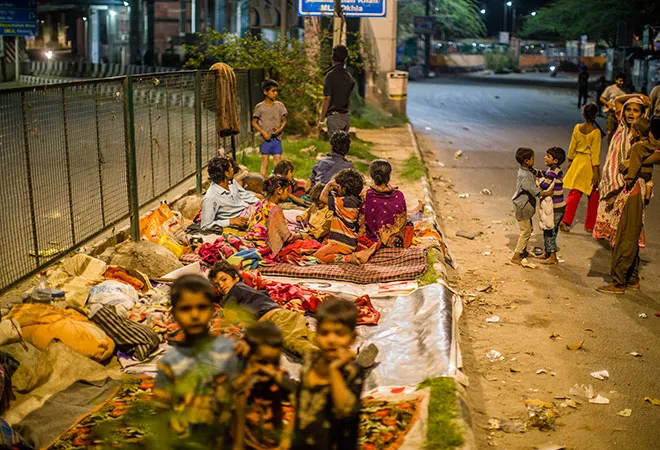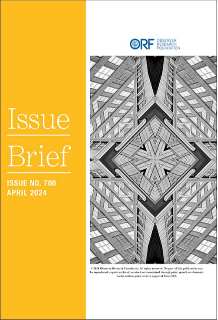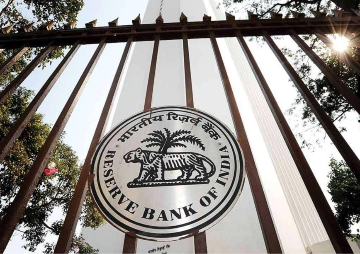
The world has disproportionately prioritised chasing income and output against social welfare. While not discounting the efforts made by the world towards achieving sustainable development, it cannot be ignored that the badge of being the fastest growing economy in the world is more coveted than being a nation that is trying to achieve development in a sustainable manner. The latter would clearly reduce the speed of development. For example, India, though being one of the fastest growing economies of the world, stands poorly against many countries that are doing a better job at development and percolating the gains of development to all. If only the world would have collaborated on designing a strategy for pandemic preparedness in the larger vision to sustainable development, it would have probably managed to deal better with the jolt of a terrorist as tiny as the COVID-19.
This COVID crisis, it appears, may break the back of the world economy in its worst manifestation. It appears that the relatively poorer countries like India will pay a high price in this health crisis. Economic activity across the globe has been disrupted by quarantining exercises, firms, offices and production plants, public spaces such as malls, theatres, restaurants, non-essential shops being shut down, disrupting both aggregate demand and supply forces. The future of this crisis is an impending recession — high level of unemployment and spiralling inflation.
It cannot be ignored that the badge of being the fastest growing economy in the world is more coveted than being a nation that is trying to achieve development in a sustainable manner.
About 70 percent of India’s self-employed, which is the largest source of employment, are own account workers. The second most important category of employment, casual workers, account for 33 percent of the workforce. A daily wage/own account worker in India like street vendors, autorickshaw drivers, rag pickers etc., has to go to work every day to earn their living. These individuals face the dilemma between remaining quarantined and going to work. Their future appears bleak in the face of given concerns of unemployment.
Social distancing has been designated as an important measure in dealing with the pandemic. India is home to a large population of slum dwellers. As per the Census 2011, about 65 million people reside in slums. Social distancing in slums is not a feasible strategy. If a single positive case goes undetected in a slum area, it will be very difficult to contain a community spread. The public health infrastructure has to then meet the acid test. The reality of the health infrastructure in India is well known. Let alone pandemic preparedness, our nation is not even very well equipped to deal with the routine medical requirements of the nation. The following numbers say it all: About 23,582 government hospitals provide about 710,761 beds in India, of which 19,810 hospitals accommodating 279,588 beds are available in villages while 3,772 hospitals with 431,173 beds are available in urban areas. The country has only 2,900 blood banks, implying less than three blood banks for every one million population.
People are already queuing up at the chemist shops for masks and hand sanitisers. If the spread of the virus continues at the rate at which it is now, the demand for these masks and sanitisers are likely to hit the roof and so will the prices of these commodities. In the race to acquire these essentials in the times of the COVID crisis, the poor are likely to be outpaced by the well-off.
Social distancing in slums is not a feasible strategy. If a single positive case goes undetected in a slum area, it will be very difficult to contain a community spread.
An important lesson learnt during the 2009 swine flu pandemic, despite the efforts of the World Health Organisation, the poor countries received the vaccines slower than the richer countries. The question of vaccines is not even relevant in the present circumstance. However, whenever it does become relevant, India does run the risk of being deprived of vaccines in relation to its needs given the sheer size of its population. As of now, it has done much better than many countries in containing the virus and on the optimistic side, it might not need much of the vaccines when they come. But as a word of caution, if time doesn’t stand by India’s side, then it has to ensure that its people at large — and the poor in particular — are not deprived of the right treatment.
Another potential problem that is festering is that fearful people are hoarding essentials. Given the direction of the economy, this implies supply shortages and rising prices. Those who can hoard more will not feel the pinch of the rising prices. It is the poor, whose source of income is irregular and on a daily basis, who will bear the brunt of the resultant inflation. If things go from bad to worse, the world will see several people falling into poverty, and both the incidence and intensity of poverty increasing.
India could have much done better to have not been in this position of high risk. Deficits in India’s social welfare are old and basic problems and their solutions involve no rocket science. What is missing in India is the political will to get these problems right. Basic nutrition, decent shelter, good health and education, sanitation, access to clean drinking water etc. all are minimum basic capabilities which the most unenviable person in the society must have access to. A large number of poor in India are struggling for such access. The COVID-19 pandemic is only a warning signal that if nothing gets done about this soon, either any other such outbreak or climate change related issues or some other factor will make India hit rock bottom and then it will be too late.
The views expressed above belong to the author(s). ORF research and analyses now available on Telegram! Click here to access our curated content — blogs, longforms and interviews.




 PREV
PREV


